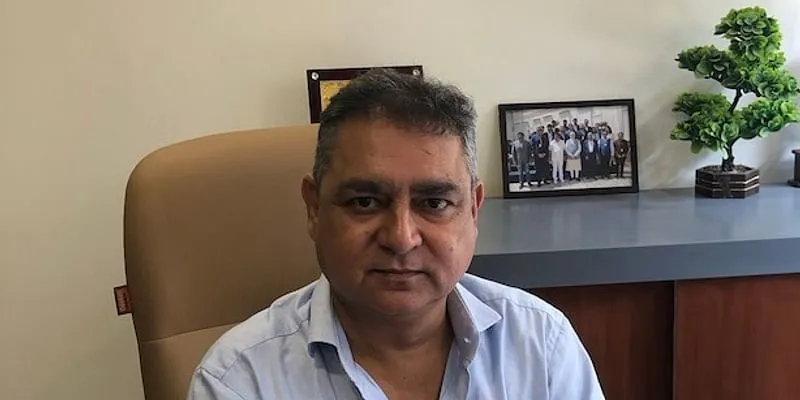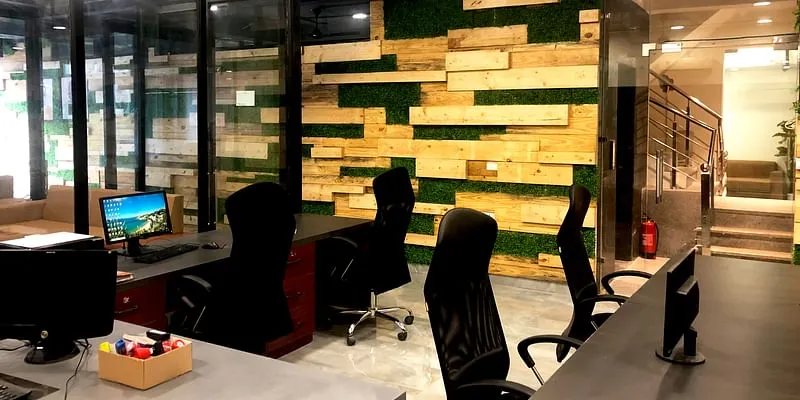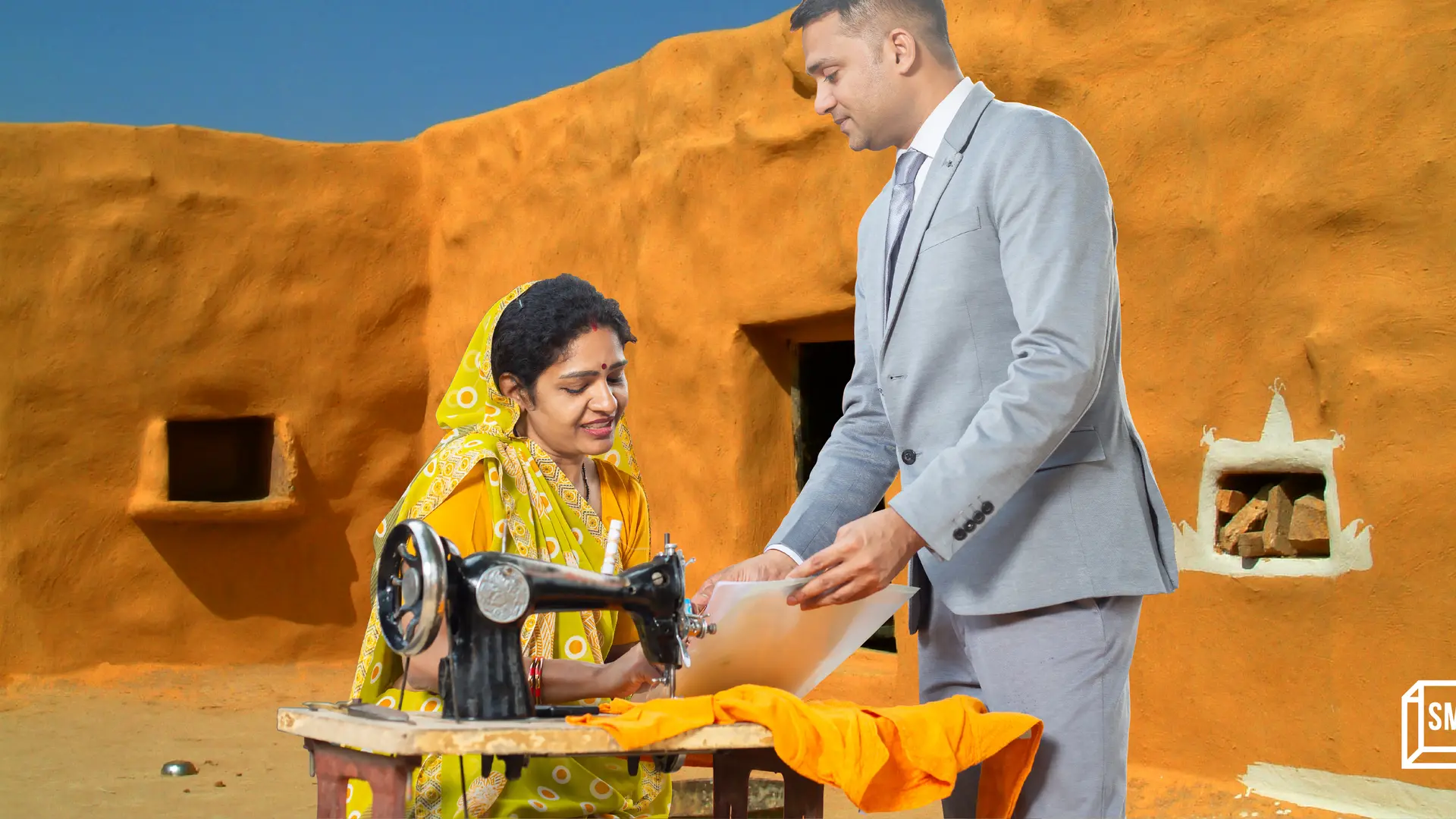This entrepreneur built a Rs 2 Cr business by solving one critical issue for clients like OYO Rooms
Spearheaded by Aayush Chaudhary and his father Ravi Chaudhary, Gurugram-based ACad Studio is a construction consultancy firm that leverages technology to solve mismanagement in the real estate and construction industry. Its clients include OYO Rooms, Carrier Midea, luxury flat owners, etc.
With his father working in the real estate and construction sector, Aayush Chaudhary grew tired of hearing how construction projects were mismanaged. His father Ravi Chaudhary had spent 15 years in the industry and knew all too well about the dangerous problem.
With no apparent solution to the critical issue, Aayush enrolled himself into a Master’s programme in Construction Management at the City, University of London, the UK, to see what he could do about it. While studying, Aayush realised India was lagging in effective construction management techniques.
“I understood that the design of a building, and how the entire process is managed is as important as the actual construction. Designing is just one part of the entire process. The implementation becomes crucial as mismanagement could spoil the entire design, increase costs, or delay the project,” he tells SMBStory.

Aayush Chaudhary, Founder and Principal Architect, ACad Studio
Seeking to set up a venture that addressed this gap, and provided effective construction management services to clients, Aayush teamed up with his experienced father and started ACad Studio in Gurugram in 2018. The construction consultancy firm was started with Rs 5 lakh initial investment.
A tech-first approach
The father-son duo, armed with a mindset to improve the standards of India’s construction industry, began managing small-scale construction projects with the help of Building Information Modelling (BIM) technology.
BIM is used to plan, design, build, and maintain real estate projects. The technology utilises numerous tools and contracts to generate and manage digital models of the physical and functional spaces of a building. ACad Studio built its own software to manage the construction and design process, to help save money for its real estate clients.
“We started adopting this new technology in a sector where people were afraid of this change. We started with smaller real estate projects and took only as much risk as was required. A team of architects, interior designers, civil engineers, and project managers were put together to execute the projects,” Aayush says.
Soon after, he faced an issue dealing with contractors who were stubborn and did not want to change the way they worked. Further, training ACad’s team members to use the new software and technology was no easy task. Real estate professionals in India had low awareness of BIM, and thought it was only used in massive real estate projects.
“Both these issues were addressed through training and education of contractors and team members. We demonstrated how technology could lower costs and save time. When they slowly started using the technology, they saw the workflow get streamlined and the challenges solved,” he says, adding that the process did not happen overnight.
As the company and team grew slowly, the profits from smaller projects were put back in the business to fuel the growth.
Today, the eight-member company labels itself a construction consultancy firm, and claims it clocked Rs 2 crore turnover last year. Some of its clients include OYO, Carrier Midea, individuals who own penthouses or flats in luxury apartments, and landowners in Gurugram.

Ravi Chaudhary, Managing Director, ACad Studio
Service portfolio and business model
“Since small builders and developers do multiple projects in a year, educating them about new techniques and the values of design helps us achieve our goals faster. We provide them with all sorts of residential, commercial, and industrial design solutions, along with interior designs. Focussing on smaller-scale projects for a few years is part of our business model. Later, we might shift to larger infrastructure projects,” he adds.
Aayush prides himself on the software his team has built to help track and manage projects better. It enables ACad to ensure transparency in dealings with clients, and also streamlines coordination between multiple stakeholders involved in a real estate project.
“Thus, we are able to build better relationships with clients and get repeat business from them. We also have an algorithm for targeting the right type of clients. We’ve been spending our marketing money to do this targeting, and our conversion rate has been high,” he says.
ACad also added turnkey architecture projects to its portfolio to help gain better control of the quality and standards involved in construction. Aayush explains that the firm can offer a wide range of inter-related, architectural consultancy services as his team is specialised in different categories.
“We track our sales every three months and change our strategy if things are not going our way. We set milestones for ourselves every month and track them. We were able to fulfil our expectations before COVID-19 hit and affected our business in a way we never imagined,” he says.

The ACad Studio headquarters in Gurugram
COVID-19 impact and future plans
When the pandemic brought the Indian economy to a grinding halt, all of ACad’s existing projects were put on hold, and its upcoming projects were dropped. The firm decided to use the downtime to focus on its existing clients, and build strong relationships with them.
“We started to enhance the designs of existing projects and provide clients with better options. The market had come to a standstill, and acquiring new customers was difficult. We also faced a shortage of labour on-site, as most of the labourers went back to their hometowns. This increased our costs of construction, and forced us to rework our calculations,” he adds.
Before COVID-19, India’s real estate sector was suffering for quite some time due to the rising NPAs in construction finance, high leverage, and tight liquidity, among others. When the pandemic hit, the real estate and construction sector saw a big dip in property visits and reduced buyer interest.
Although the decline is expected to continue for the next few months, Aayush remains confident in his plan to expand into larger-scale projects such as group housing, commercial construction, and urban development.
“There are a lot of firms offering the same services, but the way we do it is completely different. Our project management sets us apart from these competitors, as a lot of them do not use the technology and techniques we do,” Ayush says.
Edited by Suman Singh










